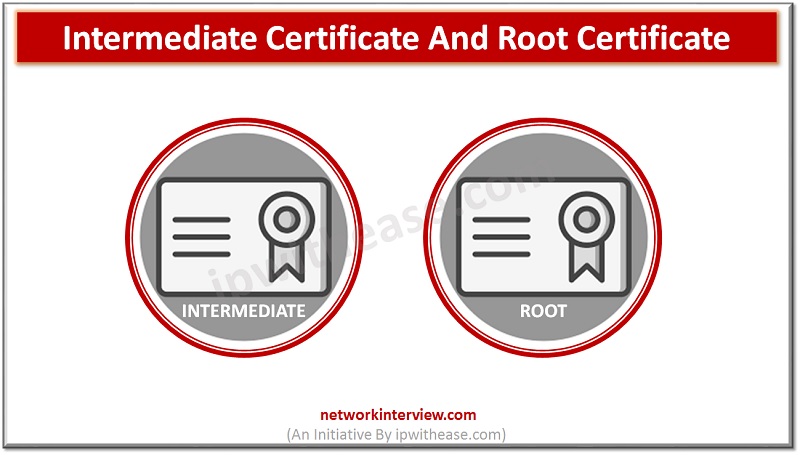
SSL Certificate types: Difference between Intermediate Certificate and Root Certificate
SSL Certificate types : Intermediate Certificate and Root Certificate
When we look at the function of the SSL certificates at the first glance, then we would find that they are pretty straightforward. You would simply install it to your concerned server and it would simply secure the sensitive data of your visitors and functions flawlessly till the expiration period. But that is not the end of the road!
Introduction
There are numerous technical aspects associated with SSL certificates that the web owners seldom delve into. All the configuration and the renewal process of these certificates are handled by the professionals and that is the reason why you occasionally stays unfamiliar with the features that are actually safeguarding your business on the Internet. As you are the key functional brain behind your online business, it is imperative for you to be familiar with what you are dealing in.
Here, we are going to shed some light over the difference between the Root Certificate and the Intermediate Certificate. We are going to understand what both sorts of certificates actually deal in and thereafter display the key features of difference between the two in a table.
Understanding Root SSL Certificate
When it comes to the trust hierarchy of the SSL certificates, then Root is considered to be the anchor of Public Key Infrastructure. These certificates are signed by reliable certificate authorities (CA). Now, the genuine question that arises in the mind is who is the one to decide the credibility of a CA. Well, they are primarily the applications and browsers that bring along a root store within their installation package.
A root store features a complete list of pre-downloaded, dependable root certificates allotted by different CAs. For example, in case a root certificate is not incorporated within Google’s root store, then it’s browser Chrome will label the concerned website as not secure.
The application of root certificate is also involved in the issuance of other certificates. In case the private root keys suffer a theft, cyber-criminals could easily forge their own branded certificates. In one such case, it is imperative to revoke all the certificates signed by the CA that endured hacking.
That is the reason why the CAs opt for stringent security protocols. The storage of the CA key is done within a specially formed Hardware Security Module. Meanwhile, the physical computing device stays inside a locked vault comprising steel doors and professional guards.
In contrast to commercial certificates, root certs feature more longevity and sometimes even feature the expiry period in decades.
Related – What is Digital Certificate and it’s Types?
Understanding Intermediate SSL Certificate
Now, before drawing the line of difference between intermediate certificate and root certificate, it is essential to avail the in-depth understanding of the intermediate certificate. It is an undeniable fact that roots are highly valuable and that is why CAs have introduced another layer of security.
The intermediate root is signed in by the root CA with the help of private key. In exchange, the intermediate CA employs it’s private key to release SSL certificates to the general public. Some of the CAs establish it as a bridge of trust between the root and the end-user certificate.
Browsers require them to recognize the root CA and sanction the server certificate. That is one of the chief reasons why there is every possibility for your SSL installation folder to contain an intermediate certificate, besides your primary cert. When compared in terms of validity, intermediate certificates surpass end-user SSL certificates, but lag behind a root certificate.
Comparing SSL Certificate Types :Root Certificate vs Intermediate Certificate
Below table summarize the differences between the two SSL certificate types-
FEATURE | ROOT CERTIFICATE | INTERMEDIATE CERTIFICATE |
Value in Trust Hierarchy | More | Less |
Public Key Infrastructure | Anchor | Security Layer |
Signed-in | Reliable CAs | Root CAs |
Access By | Root Store | Private Key |
Storage Security Protocol | Hardware Security Module | SSL Installation Folder |
Certificate Information | Remote Computer, email message, software publisher, etc. | Remote computer and issuance policies. |
Validity Lifespan | More | Less |
 | ||
Download the Comparison Table: Root Certificate vs Intermediate Certificate
Continue Reading:
What is SSL SAN (Subject Alternative Name) and it’s Purpose?
Tag:comparison, Security



